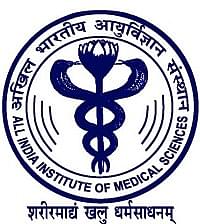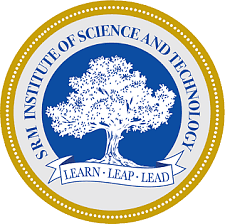Introduction to Ph.D. in Computational Biology
Ph.D. Computational Biology is an interdisciplinary program that integrates
principles from biology, computer science, mathematics, and statistics to
tackle complex biological questions using computational techniques. This field
leverages computational methods to analyze and interpret biological data, model
biological systems, and advance our understanding of living organisms at
various levels of organization.
What is admission process for Ph.D. in
Computational Biology?
The admission Ph.D. in Computational Biology typically involves several steps
designed to assess applicants' academic qualifications, research experience,
and suitability for the program. While specific requirements may vary by
institution, the following outlines the general steps involved in the admission
process:
1. Research Programs and Institutions:
Research Programs: Identify universities and research
institutions offering Ph.D. programs in Computational Biology.
Faculty Contact: Reach out to faculty members whose
research aligns with your interests to discuss potential opportunities and
establish a connection.
2. Check Eligibility Requirements:
Educational
Background: Ensure you meet
the academic prerequisites, usually a bachelor's or master's degree in biology,
computer science, mathematics, statistics, or a related field.
Minimum GPA: Maintain a strong academic record, meeting
any minimum GPA requirements specified by the program.
Prerequisite
Courses: Completion of
specific coursework in biology, computer science, mathematics, and statistics
may be required.
3. Prepare Application Materials:
Transcripts: Obtain official transcripts from all
post-secondary institutions attended.
Standardized Test
Scores: Some programs may
require GRE (Graduate Record Examination) scores. International applicants may
need to submit TOEFL or IELTS scores for English proficiency.
Letters of
Recommendation: Arrange for
letters of recommendation from professors or professionals who can attest to
your academic and research abilities.
Statement of
Purpose: Write a compelling
statement detailing your research interests, career goals, and reasons for
pursuing a Ph.D. in Computational Biology.
Curriculum Vitae
(CV): Include a detailed CV
outlining your academic achievements, research experience, publications,
presentations, and any relevant work experience.
4. Submit the Application:
Complete
Application Form: Fill out
the online application form provided by the institution.
Application Fee: Pay the application fee, if required.
Submit Documents: Ensure all required documents, including
transcripts, test scores, letters of recommendation, and statement of purpose,
are submitted by the application deadline.
5. Interview Process:
Initial Screening: Applications are reviewed by the
admissions committee. Shortlisted candidates may be invited for an interview.
Interview: Prepare for an interview with faculty
members or the admissions committee. Be ready to discuss your research
interests, academic background, and career goals.
6. Admission Decision:
Notification: Successful candidates will receive an
offer of admission.
Acceptance: Review the offer details, including
funding packages, and accept the offer if you decide to enroll.
7. Enrollment:
Complete Enrollment
Steps: Fulfill any
additional requirements such as submitting final transcripts, attending
orientation sessions, and registering for courses.
Tips for a Successful Application:
Start Early: Begin the application process well in
advance to gather all necessary documents and meet deadlines.
Tailor Your
Application: Customize your
statement of purpose and CV to highlight your research experience and alignment
with the program's focus.
Highlight Research
Experience: Emphasize any
research projects, publications, and presentations relevant to computational
biology.
Seek Feedback: Have your application materials reviewed
by mentors or colleagues to ensure clarity and completeness.
What is eligibility criteria for Ph.D. in
Computational Biology?
The eligibility Ph.D. in Computational Biology program may vary depending on the
institution and specific program requirements. However, here are some common
eligibility criteria typically expected for admission:
Educational
Background:
Applicants should
hold a bachelor's or master's degree from an accredited institution in a
relevant field such as biology, computer science, bioinformatics, mathematics,
statistics, engineering, or a related discipline.
Some programs may
specifically require a degree in biology or a biological science, while others
may accept applicants from diverse backgrounds if they demonstrate proficiency
in both biology and computational skills.
Minimum GPA:
Most programs
require a minimum grade point average (GPA) for undergraduate or graduate
coursework. The minimum GPA threshold varies by institution but is often around
3.0 on a 4.0 scale.
Prerequisite
Courses:
Applicants may be
required to have completed specific undergraduate or graduate-level coursework
in biology, chemistry, mathematics, computer science, statistics, and
bioinformatics.
Proficiency in
programming languages such as Python, R, Java, or C++ may also be required or
strongly recommended.
Research Experience:
Strong research
experience, particularly in computational biology, bioinformatics, or related
fields, is highly valued.
Applicants should
demonstrate their ability to conduct independent research through undergraduate
research projects, internships, publications, presentations, or work experience
in research laboratories.
Standardized Test
Scores:
Some programs may
require scores from standardized tests such as the GRE (Graduate Record
Examination). However, this requirement is becoming less common in some
institutions.
International
applicants may need to submit scores for English proficiency exams such as the
TOEFL or IELTS.
Letters of
Recommendation:
Applicants are
typically required to submit letters of recommendation from professors,
researchers, or professionals who can attest to their academic abilities,
research experience, and potential for success in a Ph.D. program in
Computational Biology.
Statement of
Purpose:
A well-written statement of purpose or personal statement that articulates the applicant's research interests, career goals, and reasons for pursuing a Ph.D. in Computational Biology is often required. This was the process at various 5 top university in India.












